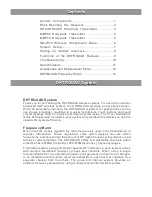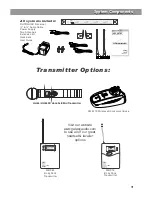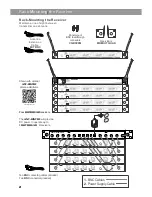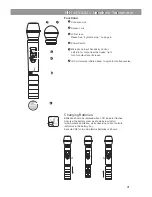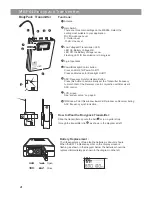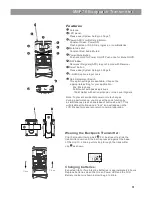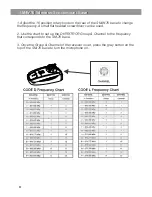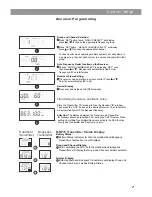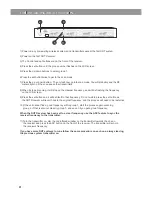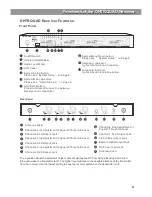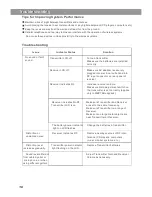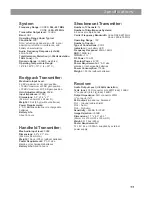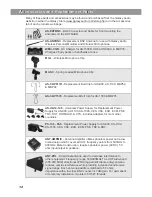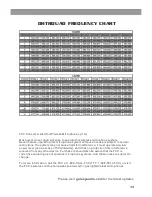
Contents
Contents
System Components..........................................1
Rack-Mounting the Receiver...............................2
HH64/HH64SC Handheld Transmitter.................3
MBP64 Bodypack Transmitter.............................4
MBP76 Bodypack Transmitter.............................5
SM-W76 Wireless Shockmount Base..................6
System Setup.....................................................7
Setting up multiple receivers...............................8
Functions of the DHTRQUAD Receiver................9
Troubleshooting.................................................10
Specifications....................................................11
Accessories and Replacement Parts.........................12
DHTRQUAD Frequency Chart....................................13
DHTRQUAD System
DHTRQUAD System
DHTRQUAD System
Thank you for purchasing the DHTRQUAD wireless system. For users who need an
advanced UHF wireless system, the DHTRQUAD provides an excellent solution.
With 120 selectable channels, the DHTRQUAD is perfect for applications such as
live shows, broadcast, meetings, & musical instruments. Touch buttons and liquid
crystal displays allow for a quick and simple system setup. The "User Guide"and"
Quick Setting Guide" included in your system will provide all the details you need to
operate the system efficiently.
Frequency Band
Most countries closely regulate the radio frequencies used in the transmission of
wireless information. These regulations state which devises can use which
frequencies, and help to limit the amount of RF (radio frequency) interference in all
wireless communications. The DHTRQUAD offers 120 selectable channels within
either the 584-607MHz (Code D) or 655-679MHz (Code L) frequency ranges.
To facilitate system setup and protect against RF interference, each system comes
with multiple predefined frequency groups and channels. When using a single
receiver/transmitter, the operating frequency will generally not have to be changed.
In an installation with multiple receivers/transmitters, each set must operate on a
separate channel from the others. The group and channel system provides an
optimum frequency spread when using multiple receiver/transmitter systems.


